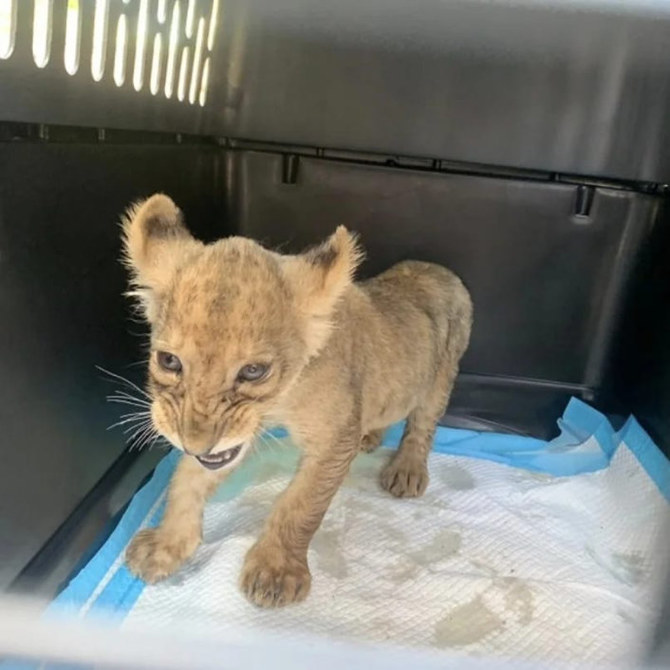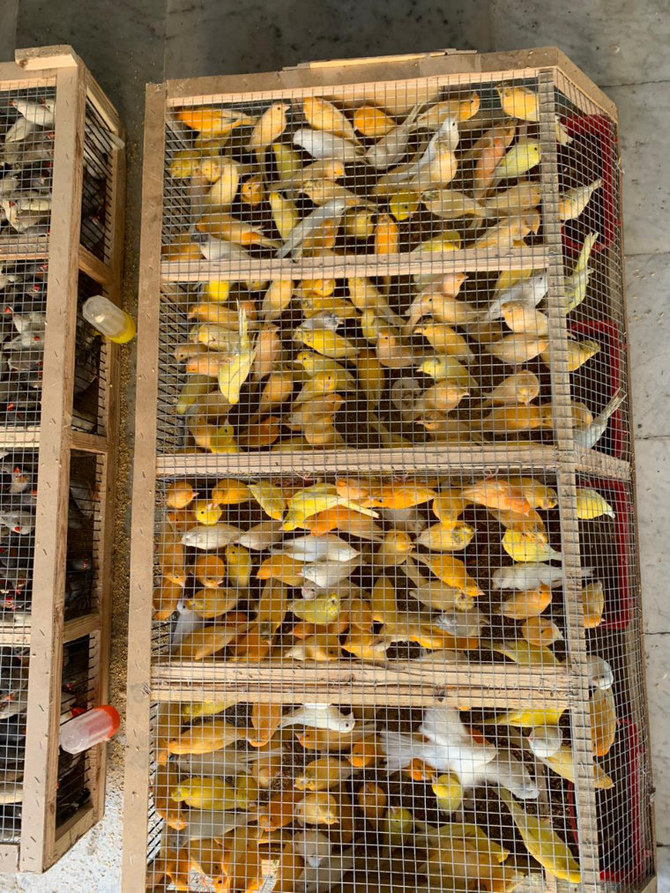BEIRUT: Lebanon has pledged to crack down on trafficking in wild animals following the seizure of an illegal shipment that included two lion cubs and a rare eagle near the border with Syria.
Agriculture Minister Abbas Hajj Hassan said on Saturday that Lebanon will adhere to international agreements to prevent smuggling of wildlife, and convicted smugglers will be punished.
Lebanese troops on Friday found two lion cubs, an eastern imperial eagle, 350 goldfinches and more than 1,350 ornamental birds of various types hidden in wooden cages and cardboard boxes on a truck after a routine search at a checkpoint in Batroun on the Tripoli-Beirut highway, 50 km north of Beirut.
The truck driver was arrested, and the smuggled animals were confiscated.
Internal Security Forces are now investigating the shipment, one of the largest in years and believed to have been destined for a well-known Beirut businessman.
Environment Minister Nasser Yassin said the confiscated animals were in “terrible” condition.
“We do not know how many days they had been kept in cages without food or water to be smuggled across the border, or the circumstances surrounding the smuggling operation,” he said.
The two lion cubs were treated and some of the birds released. However, the eagle was in poor condition and might not survive, the minister added.
Yassin said the businessman is likely to face prosecution.
“Out of concern with the issue of wild animals, we will sue everyone behind this operation,” he said.
“We are committed to the global CITES — Convention on International Trade in Endangered Species of Wild Fauna and Flora — the agreement that regulates this trade.”
Smuggling is a growing problem on the Lebanese-Syrian border amid widespread chaos in the region.
Most operations involve human trafficking, mainly Syrians who want to work in Lebanon or travel through the country illegally en route to Europe.
Smugglers also move medicine, fuel and illegal drugs. However, seizures of wildlife are rarely reported.
Hajj Hassan, the agriculture minister, also said: “It is not the first time that animals have been smuggled and it will not be the last. However, this is the largest shipment that has been confiscated.”
Animal rights activist Ghina Nahfawi told Arab News that the animals were destined for a businessman “known for this type of trade.”
The merchant sells animals in the Al-Awza’i neighborhood in the southern suburbs of Beirut, according to Nahfawi.
Rare and exotic creatures are sold to wealthy people, who boast about having them in their gardens, she said.
The confiscated animals were inspected by the Department of Livestock in North Lebanon and either released or given further treatment.
The eastern imperial eagle is being cared for by the Lebanese Association for Migratory Birds, while the two lion cubs were deposited with the welfare group Animals Lebanon.























